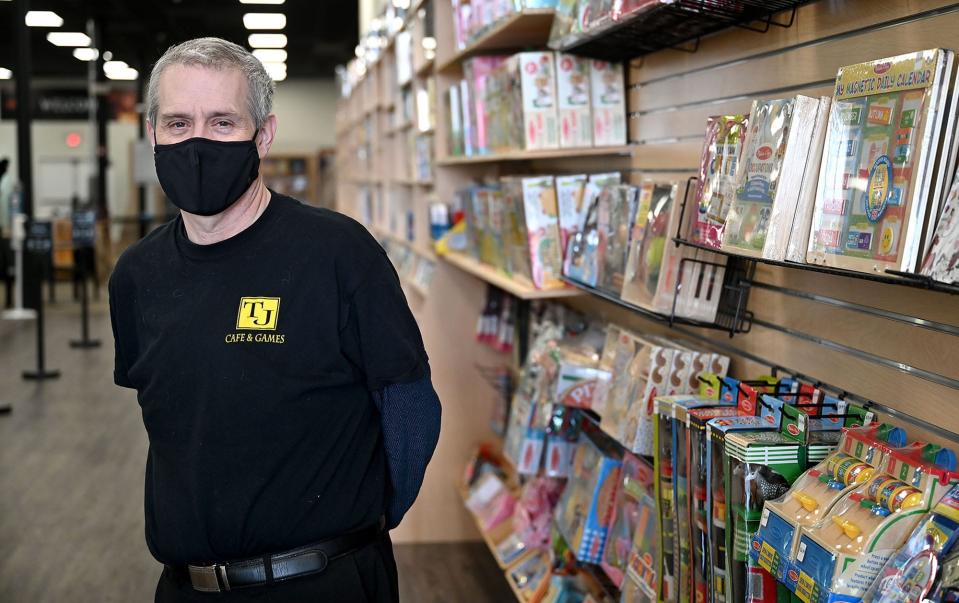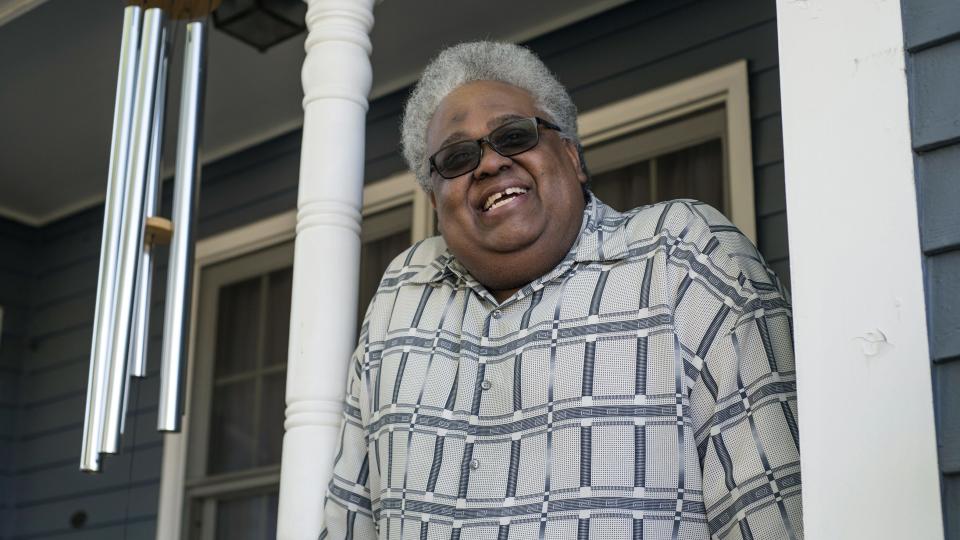Mass. minimum wage rises to $14.25 per hour. Not everybody is pleased
Tom Shea says the latest increase in the state's minimum wage, to $14.25 an hour, poses problems for small businesses.
For 30 years, Shea has owned TJ Café & Games, a Milford espresso and dessert shop that also offers in-store gaming amenities and products. He said that small businesses are already caught in a vortex of increasing food costs brought on by the pandemic, and that the 75-cent-per-hour minimum wage increase has further complicated things, noting that small business is “getting slammed in every direction.”

“The theory behind raising the minimum wage is that everybody will have more money to spend, but our cost on a lot of the food products we've added to our cafe has also increased over time,” said Shea. "Plus, when you look at minimum wage reaching $15 an hour next year, you see that the employer is paying an additional 20% roughly for state taxes.
“So, if I'm paying you $15 an hour, you're not costing me $15 an hour, you're gonna cost me more like 18 bucks.”
Staffing shortage: Cape Cod restaurateurs endure worker supply problems into pandemic's third year
The 'grand bargain'
The new state minimum wage, which took effect Jan. 1, is part of a law passed in 2018, the so-called “grand bargain” aimed at keeping multiple questions off that year’s ballot. The law also implemented a guaranteed paid family and medical leave program, and established a permanent sales tax holiday.
Starting in 2019, when the Massachusetts' minimum wage was $11 per hour, the rate has risen in 75-cent increments each Jan. 1; it concludes next year, when it reaches $15 per hour.
The current statewide minimum hourly wage of $14.25 translates to $29,640 a year for someone working a full 40-hour work week.
Kimberly Wilson, director of the UMass Dartmouth Labor Education Center, said raising wages is a solution to a domestic labor shortage.
“I think when you look at the big picture of how many people have left after the pandemic, have hooked on to different jobs or left employment, I think that the key factor is people are not getting job satisfaction, being underpaid, and not feeling respected on the job,” Wilson said. “The jobs have to be better. That's how you get people back.”
Not everybody is convinced.
Why critics say minimum wage hikes won't help workers
Christopher Carlozzi, director of the National Federation of Independent Business, said that with the most recent Massachusetts increase, everyone loses. He said that while businesses can offset the added costs by increasing prices for their products and services, consumers will face difficulty in affording those services.
“That worker may be making more, but they're going to be paying more for everything too,” said Carlozzi. “They're buying that salad or that burger at lunch, and that's more money out of their paychecks because you are seeing wages rise across the board and that's resulting in products and services rising as well."
Carlozzi also said mandating a minimum wage increase is not imperative, given that several industries in Massachusetts are already boosting wages independent of the law.
A survey conducted by the Associated Industries of Massachusetts, a statewide employer advocacy group, found that state employers in retail, professional services and manufacturing are forecasting a 3.3% increase in wages paid this year — up from 2.7% in the past year. It's the first time since 2007 that companies have budgeted increases of greater than 3%.
Hourly pay: Minimum wage rises in 21 states and 35 localities as more embrace $15 an hour
This is something driven by employer attempts at recruitment and retention, according to Kyle Pardo, an executive vice president with AIM.
“Companies are really struggling with hiring and retaining employees, so they're looking at all sorts of creative ways to figure out how to how to fully staff their companies," she said. “Compensation is definitely a part of that as well as flexible work schedules and remote work.”
See where the states rank: Massachusetts tops 5 states with the worst worker shortages

The Rev. J. Anthony Lloyd, of the Framingham Community Church, who is also a member of the Workforce Development Board for MassHire Metro South/West, is among those who agree that the higher minimum wage will attract more people back to the workorce.
“Workers are now realizing what their aspirations are and that, ‘I was working in order to live, but I'm not living in order to work,'” said Lloyd. “I'm sympathetic to my small businesses but I also recognize that people are making money right now."
He said workers deserve to have the minimum wage increase for overdue compensation for long hours of work and underpaid services.
“We need to understand that we need to invest in people's lives, and (higher) minimum wages are an investment in that," he said.
Zhihan Young of the Boston University State House Bureau contributed to this report.
Toni Caushi is a multimedia journalist for the Daily News. He can be reached at tcaushi@gannett.com. Follow him on Twitter @tcaushi.
This article originally appeared on MetroWest Daily News: Massachusetts minimum wage is boosted to $14.25 per hour
